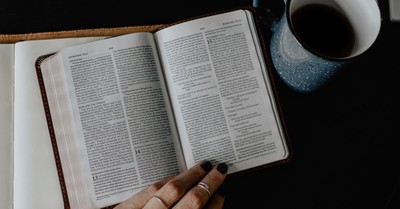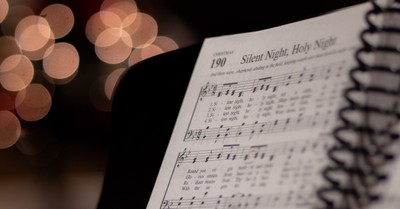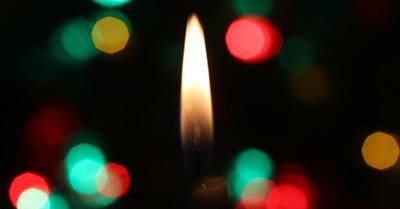O. J. Simpson’s Arrest and the Charleston Massacre: A Biblical Response to Prejudice

Twenty-five years ago today, O. J. Simpson was arrested for the murder of his ex-wife, Nicole Brown Simpson, and her friend, Ron Goldman. This after police followed Simpson and his best friend, Al Cowlings, in Simpson’s white Ford Bronco through the streets of Los Angeles.
An estimated ninety-five million people watched the slow-driving chase unfold on television.
On October 3, 1995, Simpson was acquitted of all charges. In a civil trial two years later, he was found liable for several charges related to the killings and sentenced to pay $33.5 million to the victims’ families. Some of his property was seized and auctioned, but most of the judgment has not been paid.
After the 1995 verdict was announced, a CNN poll found that 62 percent of white Americans believed Simpson to be guilty, while 66 percent of African-Americans believed him to be not guilty.
A further window into the racial divide: 58 percent of African-Americans believed whites considered Simpson to be guilty because of race; only 20 percent thought they did so because of the evidence. Sixty percent of whites believed African-Americans who considered Simpson to be not guilty based their position on race; only 23 percent thought they did so because of the evidence.
A movie Stephen Curry and Viola Davis helped produce
Today also marks the fourth anniversary of the Charleston shooting. Dylann Roof, a twenty-one-year-old white supremacist, stood up during closing prayer at the predominantly black Emanuel African Methodist Episcopal Church in Charleston, South Carolina, and began shooting. He killed nine parishioners.
At 10:45 a.m. the next morning, police took Roof into custody.
Tonight and Wednesday night only, a documentary about the shooting titled Emanuelwill be shown at theaters around the country. Featuring interviews with survivors and family members, it weaves together the history of race relations in Charleston, the significance and impact of “Mother” Emanuel Church, and the hope and forgiveness that emerged in the aftermath of the shooting.
NBA superstar Stephen Curry and Academy Award-winning actress Viola Davis served as executive producers. All the producers’ proceeds from the film will go to the victims’ families and the survivors.
The victims’ forgiveness for the man who killed their loved ones is the central theme of the movie.
Click here to find a theater near you showing Emanuel.
“I think it was a racial earthquake”
The O. J. Simpson trial and the Charleston shooting did not create racial tension—they revealed it.
Humanities professor Michael Eric Dyson was interviewed ten years after the Simpson verdict. His response: “I think it was a racial earthquake, so to speak; a race quake. It didn’t create racial tension; rather, it revealed the fault lines of bigotry and bias that trace beneath our common lives together.
“But it did reveal to white and black America that, first of all, we see things enormously differently. There [are] contrasting and almost contradictory viewpoints that animate black people and white people around the issue of race, and O. J. revealed that in the sharpest of terms.”
Four years after the Charleston tragedy, Pew Research Center reported that 71 percent of African-Americans and 56 percent of white Americans believe race relations in the US are “generally bad.” In addition, eighty-four percent of African-Americans and 58 percent of white Americans agree that the legacy of slavery affects the position of black people in our society “a great deal/fair amount.”
The difference between slaves and sons
Chattel slavery (the permanent possession of a person and all of his or her descendants by another) has been called “America’s original sin.” While it was abolished in the US by the Thirteenth Amendment in 1865, the racial prejudice that produced it is still part of the fallen human condition.
In response, it is vital that we see each person as God sees us.
Scripture teaches that those who do not know God are “enslaved to those that by nature are not gods” (Galatians 4:8). All non-Christians are spiritually enslaved to something or someone, though they probably don’t know it.
I’ve known people whose career ambitions were their master. Others live for more possessions, power, or popularity. We don’t have to endorse slavery to treat people as property and means to our ends.
The good news is that “God sent forth his Son, born of woman, born under the law, to redeem those who were under the law, so that we might receive adoption as sons” (vv. 4–5).
A slave relates to his master on the basis of what the slave does. An adopted son relates to his father on the basis of who the son is.
“The greatest honor we can give Almighty God”
To model God’s inclusive love, remind yourself every single day that you are God’s child, not his slave. Know that the Lord loves every person on earth as unconditionally and passionately as he loves you.
Then ask his Spirit if you are treating others as means to your ends rather than as sisters and brothers of one Father. Repent of any sins he brings to mind.
And remember: “The greatest honor we can give Almighty God is to live gladly because of the knowledge of his love” (Julian of Norwich).
Will you “live gladly” today?
For more from the Denison Forum, please visit www.denisonforum.org.
The Daily Article Podcast is Here!
Publication Date: June 17, 2019
Photo Courtesy: Getty Images/Ethan Miller/Staff

.jpg)

















